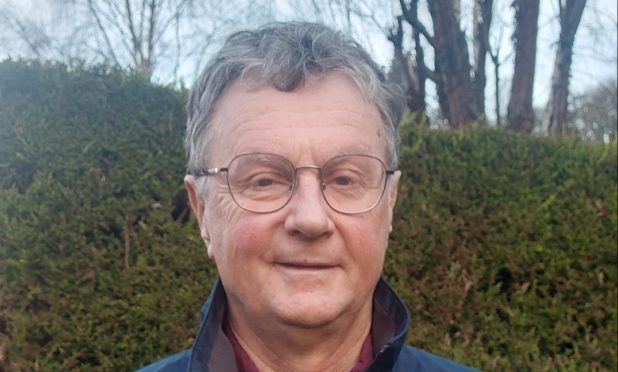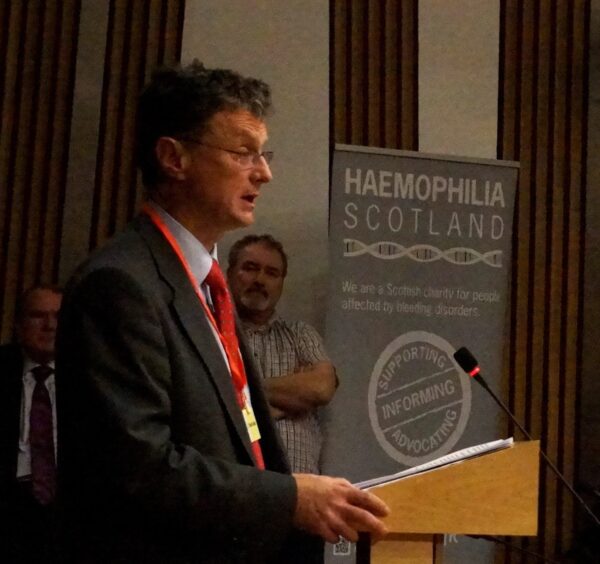A Dunkeld-based campaigner has vowed to keep the infected blood scandal in the public eye after receiving an OBE in the King’s New Year Honours list.
Bill Wright, who lives in the Perthshire town, said he was dedicating the honour to “everyone who has been affected by the infected blood disaster in Scotland and across the UK.”
“When I got the phone call from the cabinet office, I thought it was really important to receive it with a welcome.”
The 66-year-old told The Courier: “This has been an issue for me for over a quarter of a century in terms of asking questions, talking to politicians and trying to get established facts.
“This year in May 2024 the Infected Blood Inquiry final report came out. This was pretty damning about the actions of government and some medical professionals and some civil servants.
“And I think it’s really important that this issue is kept in the public eye.”
Worse treatment disaster in NHS history
More than 30,000 people in the UK were infected with deadly viruses after they were given contaminated blood and blood products between the 1970s and early 1990s.
It is the worst treatment disaster in the history of the NHS.
Some 3,000 people died as a result and survivors are living with lifelong health implications.
Mr Wright was diagnosed with Hepatitis C after being given an infected blood product in 1986.
He becomes an OBE for services to people with bleeding disorders and to the Infected Blood Inquiry.
Who is Bill Wright?
Bill Wright was chairman of Haemophilia Scotland for 12 years until he stood down in August. He is living with liver cancer.
He is one of the driving forces behind winning a full Infected Blood Inquiry, which concluded victims had been failed ‘repeatedly’ by doctors, the NHS and the government.
But Mr Wright warned the publication of the report in May had not brought the issue to a conclusion.
“I think it’s really important to say that the issue of compensation is far from resolved – a bit like that with the post office.
“There are many other issues that now need to be addressed following on from the inquiry report.”
He said those issues included “the way that government does its business, the way that we look at public health, and also in relation to safety within the medical profession and how we treat people with bleeding disorders.”
‘Not the end of the story’
Mr Wright has said previously that campaigners were “dismissed and rejected” when they called for a public inquiry into the matter a full quarter of a century ago.
Would he have believed his path challenging that consensus would lead him to an OBE?
“No, I mean, we never gave up on this.
“I spent a large part of my life heavily involved in public inquiries, as have other campaigners. This is the other thing that is important to acknowledge.
“There are several other people who, frankly, should be recognised in all of this. You know, from the Black Isle to the Borders in Scotland, and you know, they’ve made very important contributions over the years.
“So I, you know, I accept this, but this is not the end of the story.”












Conversation